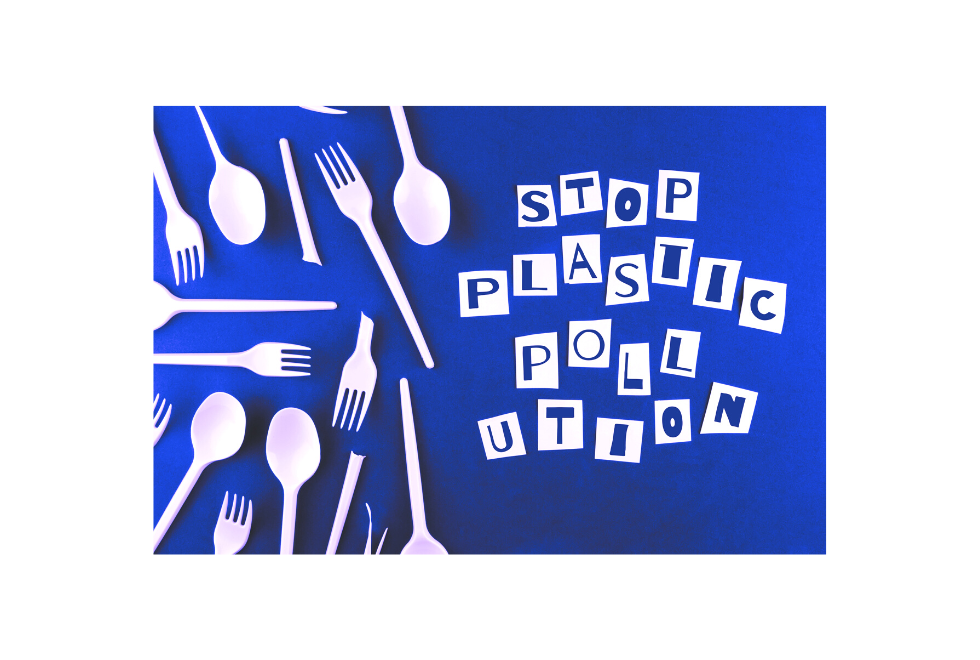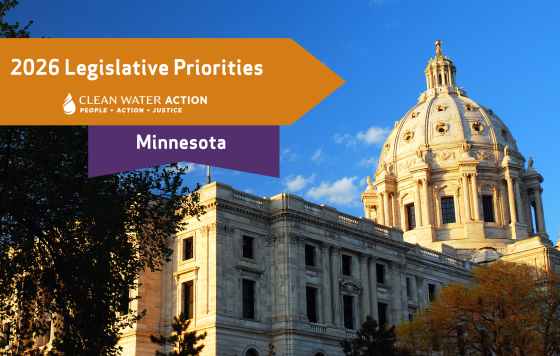
In this three part blog series, learn more about our work in Rhode Island to fight climate change, stop plastic pollution, and create healthier communities. The first in our series focuses on our campaign to stop plastic pollution.
Last year, Clean Water Action celebrated several victories on climate and plastic pollution in Rhode Island, and we nearly got our bill to ban PFAS in food packaging over the finish line by passing it in the House! On January 4th, the Rhode Island General Assembly convened to begin the 2022 legislative session and we have every intent to keep our legislative momentum going. Our legislative priorities this year fall into three main categories: 1) plastics pollution, 2) toxics and chemicals, and 3) fighting the climate crisis. We will discuss these over the course of three successive blog posts.
First up: plastic pollution.
Clean Water Action has been working for many years to stem the rising tide of plastic pollution here in Rhode Island. We have long been supportive of all sorts of local and statewide efforts reduce harmful plastics from ending up in our neighborhoods and waterways, including bans on plastic bags, polystyrene, intentional balloon releases, and others. And while all these efforts are important, they can compete with legislators’ attention and as such, progress has been slow. And in that time, our landfill has inched closer to capacity, towns and cities have struggled to maintain their expensive curbside waste collection and recycling programs, and litter and microplastics have continued to foul our streams, rivers, and Narragansett Bay.
We know the solution to plastic pollution is to stop it at its source, which is why our top priorities this year will be to pass an Extended Producer Responsibility (EPR) for Packaging and Paper bill and establish a long-overdue beverage container deposit program in Rhode Island.
The EPR bill will take the fiscal burdens associated with the end-of-life management of products—many of them single-use plastics—out of the hands of local governments and taxpayers and instead shifts those costs to the producers and corporations of these products. EPR bills are not novel policies—the European Union and several Canadian provinces have successful EPR programs in place, and Maine last year became the first state in the U.S. to pass an EPR law for packaging.
We will also prioritize the passage of a beverage container deposit bill, which is long overdue here in Rhode Island. All New England states (except New Hampshire) and New York as well as many others across the country have had these types of laws in place for decades, and in many places, recovery rates of bottles and cans is over 90%. These two bills are complementary and when both are passed, we will see an increase recycling rates, reduce plastic pollution, and reduce costs for municipalities and taxpayers.
We plan to continue to fight the petrochemical industry efforts to create a loophole in Rhode Island’s long-standing ban on the incineration of municipal solid waste. For several years in a row, their corporate lobbyists have pushed legislation to declassify recyclable plastics from being considered solid waste so that they can build incinerators—or so-called “advanced recycling” facilities—as their solution to our plastics crisis. The construction of these facilities are most decidedly not the solution; instead they enable the production of more plastics, create emissions that are both harmful to human health and set back our mandatory emissions reduction targets, and create massive environmental injustices in the communities in which they are built.
We also anticipate the re-introduction of bills to ban polystyrene food containers, ban single-use plastic bags, place a deposit on (or ban outright) alcoholic nip bottles, and other legislation to reduce the impact of single-use plastics in our state. We will continue our support for these bills as we have in the past.
We know the solution to the plastic pollution problem lies in source reduction policies, and the General Assembly is poised to make these critical changes to the way we manage waste here in our state. We will work hard over the next several months, but if you would like to help with these efforts or for more information, please contact Johnathan Berard at jberard@cleanwater.org. You can also become a member and support our programs in Rhode Island here.


